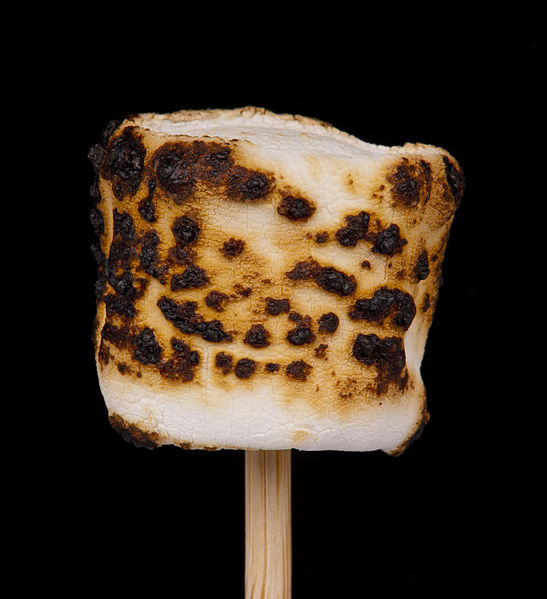Please note: Osher Rainforest will be closed for maintenance Jan. 14–16.
Science News
July 4th Smorgasbord
July 3, 2012

As you enjoy this summer holiday, eat well and relish some delicious science headlines...
Pass the Bark, Please
Analysis of the teeth of a 2-million-year-old hominin known as Australopithecus sediba, a relative of modern humans, reveals that they ate leaves, fruits and bark. Yum! That makes their diets more similar to giraffes and chimpanzees than modern humans.
The results, reported in Nature last week, suggest that these early ancestors lived in a woodland environment. This contrasts with previously described diets of other early hominin species that suggested an open savannah habitat.
Early Top Chefs?
Early pottery, discovered in a cave in China, dates back to 19,000 and 20,000 years ago according to a new article in Science. These pots are the oldest discovered so far, and pre-date agriculture in the region.
The study’s authors believe that these early pots and bowls were used by hunter- gatherers during a cooling period on the planet. Cooked food would have provided more energy at time with fewer resources for food.
Beautiful, but Tasteless
Last week, UC Davis researcher Ann Powell, also publishing in Science, described a gene mutation responsible for beautiful, yet flavorless, red tomatoes.
In the late 1920s, commercial breeders stumbled across a natural mutation that caused tomatoes to ripen uniformly—from an even shade of light green to an even shade of red. Shoppers, as well as ketchup and tomato sauce producers, found these evenly red tomatoes more appealing and the mutation is in nearly all modern tomatoes.
But hopefully, not for long, says Powell. “Now that we know that some of the qualities that people value in heirloom tomatoes can be made available in other types of tomatoes, farmers can have access to more varieties of tomatoes that produce well and also have desirable color and flavor traits.”
Fish of the Day
Scientific American ClimateWire has an article this week about new fish species in Britain due to warmer water temperatures. Traditional cold-water fish like cod are heading for cooler waters north, while warm water fish like red mullet and sea bass are appearing in the waters around the British Isles. Fish and chip menus will have to adjust with the changing temperatures, scientists warn.
Brain Freeze!
Have you listened to any of NPR’s Summer Science series? This week they reported on the mystery behind the brain freeze—the quick headache caused by eating something cold too quickly. And while there are many theories, no one knows for certain what causes them. Also check out the science behind the perfectly toasted marshmallow.
Enjoy!
Image: Evan-Amos/Wikipedia